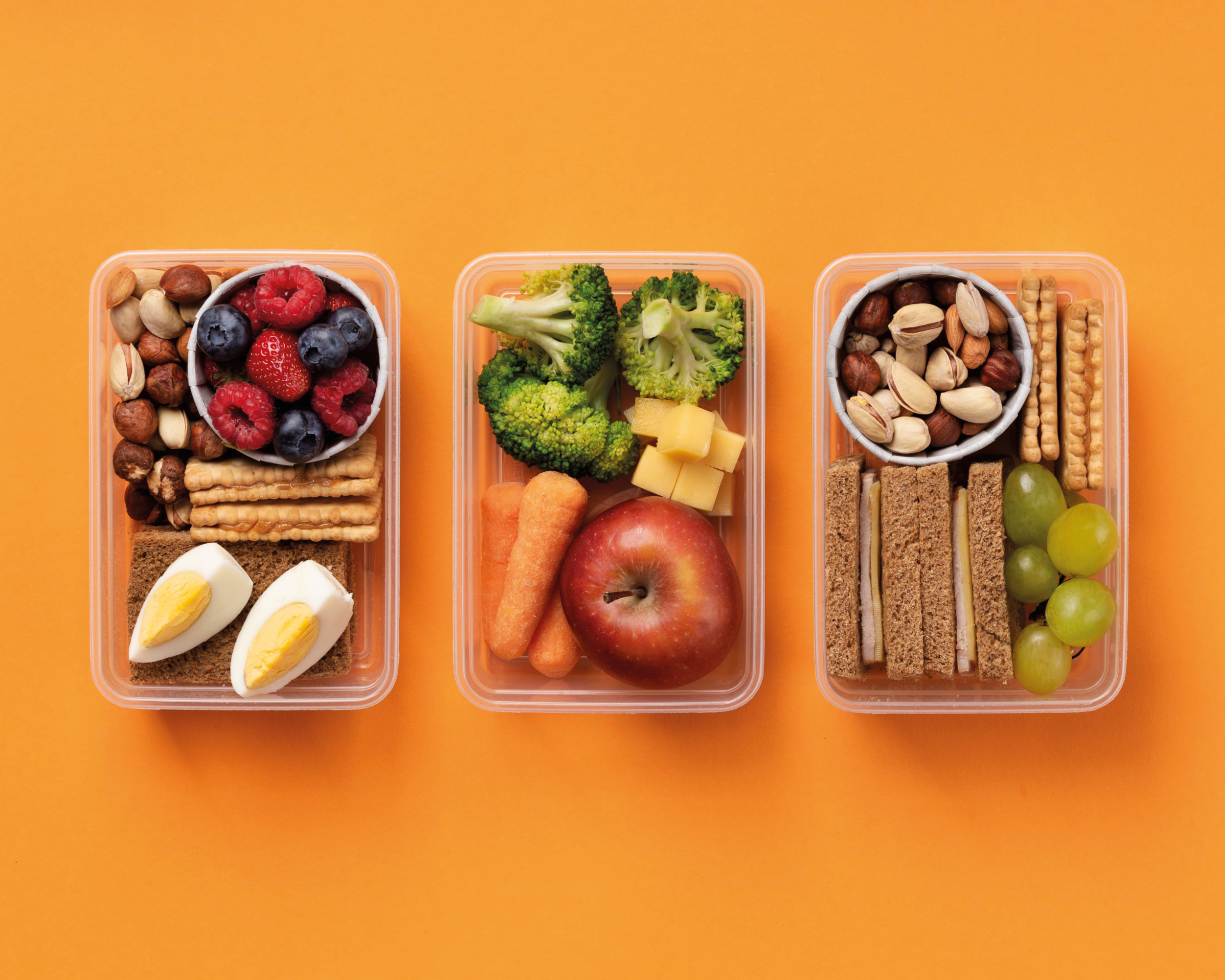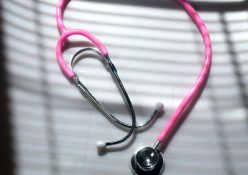You need to give your organs the right things so you can get the most out of them
Quick question: When last did you think about how your organs are impacted by what you eat? The truth is that many of us may not be aware that there is a very intricate relationship between our diets and not only our hearts, but also our eyes, brain and even reproductive organs! We’ve recruited expert dietitians to help us break down what we need to be eating and what we should avoid to keep all our organs in check
THE EXPERTS
Vanessa Clarke
As a spokesperson for the Association for Dietetics in South Africa (ADSA), Vanessa is a consulting dietitian who aims to help families and individuals follow a food-first lifestyle and be properly nourished. clarkedietitian.co.za
Nathalie Mat
Nathalie is a clinical dietitian who works in private practice. She has experience in private and public hospitals. She is also a consultant to the health sector, as well as a popular ADSA spokesperson. nathaliemat.co.za
Claire Pye
As founder of nutriFYI, Claire has a passion for nutrition and education, as well as mentoring and coaching others to help promote optimal health. She provides all-round support to aid positive diet changes. nutrifyi.co.za
Expert Nathalie suggests that: ‘If we consume a mix of nutrients that don’t support the function of an organ, it can be very difficult to work efficiently. Not only that, but some of the foods we consume can be taxing on the organs.’
THE STOMACH
Located under the upper abdomen, the stomach is an important organ that can be directly influenced by our eating habits because of its key role in the body’s ability to function. Firstly, it acts as a storage space for the food we have recently consumed. More importantly, it aids in digestion: The enzymes and acids that are secreted by the stomach are key components in breaking down food. The stomach also has the ability to contract its muscles; this then aids with digestion.
More Of This
Keeping the stomach healthy has less to do with what we eat and more to do with our eating patterns: The stomach is a muscular bag that has a protective mucous lining, which in turn stops the extremely strong stomach acid from damaging the lining. The food we eat dilutes the acid in the stomach, so we should focus on consuming small and regular meals to help reduce the exposure of the stomach lining to excessive acid. It is also important to avoid skipping meals regularly, as this behaviour can worsen the symptoms for those who struggle with ulcers.
Less Of This
Regularly consuming alcohol, especially on an empty tummy, can dissolve that mucous lining and lead to irritation. Another item that should be limited is coffee. A high caffeine intake can increase the production of stomach acid, leading to heartburn or irritation as well as inflammation of ulcers and the stomach lining. We’ve also got bad news for all those chilli lovers: If someone has an irritated lining of the stomach – chilli and spicy foods can cause major discomfort.
THE INTESTINES
Needed for digesting food, they are divided into three parts: the small intestine, large intestine and rectum. The contents from the stomach move into the small intestine, where the nutrients are absorbed. Then it moves into the large intestine, where water is absorbed from the waste and a stool is created, which finally exits the body through the rectum.
More Of This
Aside from absorbing nutrients and water, roughly two-thirds of the immune system is located here. This means that one should opt for foods that nourish the lining of the digestive system as well as the immune system. Foods with fibre fall into this category. Humans do not digest fibre, but our gut bacteria do. When they break down the fibre, they produce short-chain fatty acids that are an excellent fuel source for our digestive systems. Wholegrains, fruit and veg as well as legumes are some of the best sources around.
Less Of This
Discomfort can occur when we overeat or if we consume foods the body is not able to tolerate. One to two per cent of the population suffer from coeliac disease, a condition in which gluten causes a reaction that damages the intestines so that they are unable to absorb nutrients well. Simply cutting out gluten completely is not recommended for most people, as this means cutting out a large portion of fibre as well.
THE LIVER
This is one organ that has numerous vital functions. Without it, we wouldn’t survive. It aids in the process of breaking down fats either by metabolising them or releasing them as energy in the body. It also breaks down and removes harmful toxins, including everyday chemicals from the bloodstream such as ammonia, alcohol, caffeine, medications, as well as hormones. The liver also manages cholesterol levels, helps to regulate blood sugar and is even a storage organ for nutrients. In addition,it also produces bile, which helps with the absorption of fats.
More Of This
There is no one nutrient to focus on for the liver as so many are needed, but adequate amounts of omega-3 are recommended. Great sources of omega-3 are fatty fish such as sardines, pilchards and snoek. Eat wholegrains to manage cholesterol and blood sugar, as well as eggs, lean meat, beans, nuts and seeds, which are all sources of choline. Choline is incorporated into the liver’s cell membrane and keeps it healthy.
Less Of This
Excess is the enemy of the liver. Alcohol abuse (with more than 21 drinks a week considered problematic) can cause cirrhosis, which is a condition in which the liver hardens. Following a diet that is regularly low in protein, high in refined carbs and low in fruit and veggies is also a recipe for liver issues.
THE PANCREAS
Nestled right behind the stomach is another crucial organ. During digestion, the pancreas secrete enzymes into the digestive tract to break down fats, starches and sugar. They also secrete hormones that play a role in stimulating stomach acids and regulating appetite. And, perhaps most importantly, it releases the hormones insulin and glycogen, which regulate blood sugar levels.
More Of This
While there is not necessarily any specific food or list of nutrients to add to your diet, an imbalanced diet can put a limit on the functioning of the pancreas. Therefore, a diet that is balanced in protein and nutrients will put you in good stead.
Less Of This
Moderate portions are key to ensuring that your pancreas keeps functioning. Eating large portions of refined carbs and sugar requires large doses of insulin to keep blood sugar balanced, meaning more strenuous work for this organ.
THE KIDNEYS & BLADDER
These organs play a role in the body’s detoxification and elimination processes. The kidneys’ main function is to purify the blood by removing waste products and excreting them with urine, which is stored in the bladder. These organs also control the body’s fluid and iron levels.
More Of This
The best way to support the bladder and kidneys is to stay hydrated and eat a diet high in fibre and antioxidants. Antioxidant-rich foods include seaweed, blueberries and cranberries. Studies have also shown that celery and celery juice have a positive impact on kidney support, and that eating broccoli regularly can help reduce your risk for bladder cancer. Keep in mind that a large number of toxins pass through this area, so maintaining a healthy diet helps to keep these organs clean.
Less Of This
Sodium or salt, while vital for various bodily functions, is helpful when eaten in the right amounts. If you’re consuming too much sodium or salt, it could negatively impact your health and the functioning of your kidneys, leading to the formation of kidney stones.
THE LUNGS
These organs are responsible for taking in oxygen-rich air and moving that oxygen into the blood, so that it can be carried around the body.On its way back, the blood will pick up waste gases and carry them back to the lungs, where we breathe them out. Our lungs also help with pH balance, filtering out small blood clots as well as air bubbles, and clearing out dust and bacteria. They also play a key role in our ability to speak.
More Of This
The focus here should be on plenty of fruit and vegetables that are rich in antioxidants (such as oranges, berries, broccoli, spinach, red pepper and tomatoes) to reduce the oxidative stress placed on our lungs through the daily processes of respiration and metabolism. Vitamin C and fibre have also been shown
to be protective against lung disease. Believe it or not, red pepper is the best source of vitamin C. It is also a source of fibre along with whole-grains, nuts and legumes.
Less Of This
A high intake of red meat and processed meats has been linked to an increased risk for lung cancer. Being overweight and smoking are other known risks for lung-related conditions.
THE BRAIN
What doesn’t it do? Our brain controls everything from processing sensory information as well as regulating blood pressure and breathing, to storing memories and maintaining daily physiological cycles (such as digestion and sleeping). Because of its utmost importance in, well, everything, we need to take extra care in looking after it.
More Of This
Omega-3 fatty acids are the building blocks of the brain and they are not something our bodies produce on their own, so we need to get them from food. Omega-3s are only found in fish, so vegetarians, vegans and those who have allergies need to take supplements. B vitamins are linked to preserving brain cognition. You can get these vitamins from wholegrains, leafy greens and nuts. Choline is also important to help support the prevention of memory loss and cognitive decline – and the best source for this is eggs.
Less Of This
Diets that are high in saturated fats have been associated with cognitive decline and ageing too. Avoiding processed as well as fried foods with large amounts of saturated fat will help ensure optimal brain function.
THE EYES
Our eyes provide us with vision by detecting lightand transforming it into electrochemical impulses, which can be processed
by the brain. They allow us visual detail as well as various other photo-specific functions outside of vision.
More Of This
Carotenoids are plant pigments that work as antioxidants in the body. Lutein and zeaxanthin are two types of carotenoids that have been positively related to eye health by reducing the risk for cataracts. You can find these in leafy greens, broccoli, carrots, tomatoes and eggs. And if you’ve heard that if you eat carrots you will be able to see at night, there is some truth in this. Carrots are a source of beta-carotene (another carotenoid), which turns into retinol/vitamin A in our bodies, and helps to prevent night blindness.
Less Of This
A highly processed diet in refined carbohydrates and saturated fat has been shown to increase the risk for eye-cell degeneration. Limit fried foods, sugar-sweetened beverages and processed meats.
THE SKIN
Yes, your skin is an organ – and the largest one at that! Its primary function is to act as a barrier to protect us from impact, pressure, temperature, radiation, chemicals, as well as micro-organisms. It also regulates our body temperature by controlling how our hair grows, the use of our sweat glands and how we use it for our sense of touch.
More Of This
Vitamins and minerals such as vitamins C and E (found in nuts and seeds) all act as antioxidants for our skin, and can also assist with sun damage and the exposure to toxins (from pollution in the air, for example). Vitamin C – especially from strawberries, red pepper, oranges, broccoli and tomatoes – helps to form collagen, which gives our skin its structure. Individuals who suffer from acne may benefit from a low-GI diet. While water is not a nutrient, it plays a key role in keeping it hydrated and healthy.
Less Of This
Reduce your exposure to toxins by protecting your skin from pro-inflammatory nutrients (such as sugar) and avoiding high-pollution areas. This helps prevent skin cell damage and ageing. Avoid refined carbs to reduce inflammation and control hormone-related acne.
THE REPRODUCTIVE SYSTEMS
The female and male reproductive systems both require a diet that supports fertility, libido and healthy hormone production. Aside from both systems’ function of conceiving children, they also produce hormones that are extremely necessary for the everyday functioning of the body.
More Of This
For women, zinc from lean white meat and iron, and iodine from figs and beans, support fertility by regulating ovulation and hormonal function. Zinc also promotes healthy egg production and libido in both men and women. For men, spinach (full of folate) increases blood flow and helps improve sexual health, while also assisting with erectile dysfunction. Carrots are packed with high levels of carotenoids, which actually helps to up a man’s sperm count. Turmeric and apples have also proved to ward off prostate cancer.
Less Of This
Women should try and avoid foods that are highly processed, including soy products and foods that are high in sugar, saturated and trans fats, as well as alcohol. Men should avoid processed meats, trans fats and high-fat dairy products as well to keep their system healthy.
Words by Bianca Muller & Andrea Robertson
Photography: Alamy, Freepik





